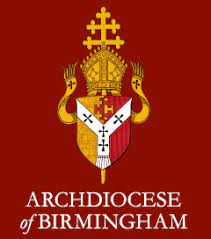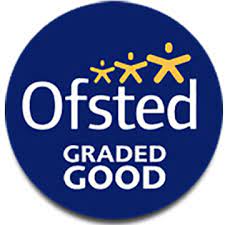Reading

Intent
At St Mary’s Catholic Primary School we believe that all pupils should have the opportunity to be fluent, confident readers who are able to successfully comprehend and understand a wide range of texts. We want pupils to develop a love of reading, a good knowledge of a range of authors, and be able to understand more about the world in which they live through the knowledge they gain from texts. By the end of their time at primary school, all children should be able to read fluently, and with confidence, in any subject in their forthcoming secondary education.
We understand the importance of parents and carers in supporting their children to develop both word reading and comprehension skills, and so we want to encourage a home-school partnership which enables parents and carers to understand how to enhance the skills being taught in school through good quality texts.
Implementation
Classroom organisation:
We teach reading skills as whole class lessons, so that all children have access to the age related skills and knowledge contained in the National Curriculum. Within lessons, all pupils work with the teacher to read and discuss the text they are using.
Across the entire school, from EYFS to UKS2, we use VIPERS (Vocabularly, Infer, Predict, Explain, Retrieve, Sequence/Summarise) as the main focus skills for our lessons. This allows children to embed from a very young age the different skills required to access and understand a text.
This also allows children of all abilities to share in both knowledge and ideas. Children are also read individually and/or in groups according to age and specific children’s needs.
Phonics: Early Years and Key Stage 1:
Pupils are taught as a whole class, focussing on individual sounds, groups of sounds and common exception words within different ‘phases’. We follow Reading Planet Rocket Phonics which is a DfE validated SSP programme aligned to Letters and Sounds.
Each class uses targeted interventions to assure that all children are achieving their phonics’ targets. KS1 and EYFS along with some LKS2 use Phonicstracker to monitor progress, individualise learning to areas of need and to boost attainment levels.
During the Summer Term in Year 1, pupils undertake a Phonics Screening Test which assesses their ability to apply what they have learnt. Pupils who do not pass their Phonics Screening Test continue to have intervention to support the acquisition of these key skills.
EYFS and KS1 Reading Scheme
We have a new reading scheme called Rising Stars Reading Planet which compliments our phonics scheme Rising Stars Rocket Phonics. The scheme includes a range of engaging and modern fiction and non-fictions texts. There is also a section of phonics readers that are fully decodable and can be matched to each child’s current phonic ability.
The books are banded by colour according to level of difficulty in terms of decoding words and understanding of the text. There is progression through each colour of the book band system, with books becoming increasingly more difficult throughout each of the bands. This scheme is structured to ensure that children have access to a wide range of texts, and allows for pupils to develop their skills within a level before moving to the next level. EYFS and KS1 pupils have a home-reading record which they take home daily. Parents and carers are asked to add comments to the home-reading records to indicate how much pupils have read. Parents are given the opportunity to attend an information session regarding how to read effectively with their child at home.
Whole Class Guided Reading lessons
Each phase will decide a text from which a whole class guided reading lesson will be based. This will be either book used for the whole term or an individual text for each lesson. Every child will have the opportunity to read and will be given a copy of the text to follow. Comprehension will be assessed through either written or verbal questioning by the teacher. Lessons have a ‘VIPERS’ focus (either Vocabulary, Inference, Prediction, Explanation, Retrieve, Sequence/Summarise) and children are aware of the reading skill they are focussing on in each lesson. Teachers will use their professional judgement to determine whether a child is working within age-related expectations, above or below. They will base their judgements for the most part on the quality of the written outcomes pupils given after structured teaching within the agreed reading skills. Teachers may also complete reading assessments, daily individual reading and group reading records to provide further evidence to support their assessment. All marking and feedback is given in line with our marking and feedback policy.
Pupils also have a wide range of online resources to boost their reading ability. These can be accessed both at home and during school time. Reading Plus for KS2 children provides the children with a variety of challenging and engaging texts that are targeted individually for each child. This program also gives the teacher a clear indication of the child’s ability, by testing both reading and comprehension skills regularly. The program is designed to be tailored to each child’s individual needs and uses an algorithm to ascertain the next steps and gaps in knowledge and skills for that child giving work that targets these areas.
Bug Club, which is used in KS1 and for some KS2 children, is a reading programme that helps transform children into lifelong readers. There are a variety of books from fiction to non-fiction covering a wide spectrum of subjects. With added quizzes and comprehension, Bug Club helps children of varying abilities in all areas of their reading. It is a fun and engaging interface that allows children to be enthused in their reading to gain rewards to individualise their experience on the platform. Like Reading Plus, teachers are able to monitor progress as it can provide assessment as well as frequency of access and books read.
Bookmark Reading
Our six-week reading programme involves two 30-minute sessions each week with a child who needs extra support with their reading. This can be either face-to-face in a local primary school, or virtually through our secure online platform.
Our digital platform matches schools with fully safeguarded, vetted and trained reading volunteers in the local community, at the tap of a button.
Schools have flexibility to decide which children will take part in the programme and for how long (six weeks, 12 weeks, or more).
We give children the reading skills and confidence they need for a fair chance in life, through our flexible volunteer-led programme.
Bookclub
Each half term a small group of children in each year group are selected to participate in our school Bookclub. Each year group has a different book to explore, read, enjoy and digest weekly and the group’s aim is to increase confidence, love of reading and to expose children to different high quality texts.
Library
St Mary’s library really is a wonderful space and place to explore the world and the limits of your imagination through the power of a good book! We are blessed to have a varied, well stocked and modern library with everything you would expect from a public library. Children have the opportunity to check out books from a vast selection of genres, authors and mediums as well as becoming familiar with the Dewey system to find the best books for them and their interests. The library has boasted a vending machine for books and also has a selection of literary based art that the children have created. It is a space where children are encouraged to be excited and enthusiastic about the books they discover as well as being a warm and inviting place to cosy up and share a story. Our library is a place where children and adults alike love to be and spend time in the company of many fantastic books!
Reading areas – classrooms and outside
Each classroom has its own reading area and library for the children to use and enjoy. These areas are designed to be welcoming and exciting so children are eager to explore and enjoy the many books these spaces offer. The books are rotated between classrooms in phases to allow for more variety and interest as well as being exposed to a greater number of high quality texts. Reading areas all provide a wide range of reading material available, including newspapers, magazines, comics and non-fiction, as well as fiction. Challenges, directed tasks and reading games are also part of the reading area experience and children are encouraged to take part in these activities.
Outside there are reading nooks in each of the playgrounds that children can access during playtimes and allows the love of reading to permeate every part of the day. Children can take a book from the outdoor cubbies and enjoy shelter and a comfy seat in our pergolas or find a magical reading spot under one of our leafy trees.
Book week
Book week is an eagerly anticipated event each year at St Mary’s. Children love to participate in all the activities on offer that further develop and embed the love of reading in our school. Each year Book Week has a different theme with this year’s Non-Fiction theme being a tremendous success. Activities include lunchtime stories and bookmark making, drop everything and read, guess the teacher by the favourite book competition and character day. Books and reading are part of the fabric of our school and through Book Week we have the opportunity to celebrate and share this with our school family.
Impact
- Pupils will enjoy reading across a range of genres.
- Pupils of all abilities will be able to succeed in all reading lessons.
- Pupils will use a range of strategies for decoding words, not solely relying on phonics.
- Pupils will have a good knowledge of a range of authors.
- Pupils will be ready to read in any subject in their forthcoming secondary education.
- Parents and carers will have a good understanding of how they can support reading and home, and contribute regularly to home-school records.
- The percentage of pupils working at ARE within each year group will be at least in line with national averages.
- The percentage of pupils working at Greater Depth within each year group will be at least in line with national averages.
- To allow pupils the opportunity to develop into life-long readers.



